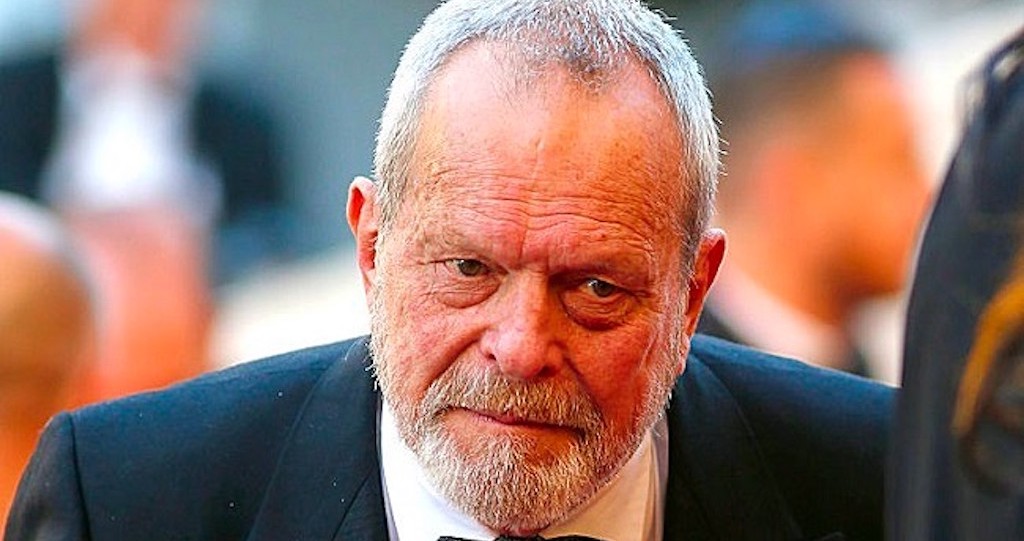Terry Gilliam is both one of the great filmmakers and, being one-sixth of Monty Python, a comedy legend. He also has terrible luck. Some of that isn’t his fault, but some of it is of his own making. In the latter category we can put his habit of giving interviews in which he says deeply unpopular things about Marvel movies and, much more importantly, #MeToo. He has a history of criticizing the movement, and now he’s done it again in an instantly controversial interview with The Independent.
I can't say it was a pleasure to interview Terry Gilliam https://t.co/05FNz8sDVW
— Alexandra Pollard (@alexjpollard) January 4, 2020
On Saturday, journalist Alexandra Pollard tweeted out her new interview with Gilliam, but with ominous words. “I can’t say it was a pleasure to interview Terry Gilliam,” she wrote. Sure enough, the interview goes south immediately. It was ostensibly for his latest film, The Man Who Killed Don Quixote, a project so plagued that he first tried filming it in the early aughts, only to be done in by fate.
Instead, the director told her, “I’m so booored of talking about the film.” Instead, he sounded off with opinions that have already gotten him in hot water and tested the patience of his longtime fans.
“There’s no room for modern masculinity, I’m told,” Gilliam told Pollard. “‘The male gaze is over.” He then discusses the film’s main female character, played by Joana Ribeiro. “In the age of #MeToo, here’s a girl who takes responsibility for her state,” he said. “Whatever happened in this character’s life, she’s not accusing anybody. We’re living in a time where there’s always somebody responsible for your failures, and I don’t like this. I want people to take responsibility and not just constantly point a finger at somebody else, saying, ‘You’ve ruined my life.’”
Having already criticized those who’ve accused others of sexual assault and harassment, Gilliam repeated an earlier claim. “Yeah, I said #MeToo is a witch hunt,” he said. “I really feel there were a lot of people, decent people, or mildly irritating people, who were getting hammered. That’s wrong. I don’t like mob mentality. These were ambitious adults.”
He continued:
“There are many victims in Harvey’s life,” he adds, “and I feel sympathy for them, but then, Hollywood is full of very ambitious people who are adults and they make choices. We all make choices, and I could tell you who did make the choice and who didn’t. I hate Harvey. I had to work with him and I know the abuse, but I don’t want people saying that all men… Because on [the 1991 film] Fisher King, two producers were women. One was a really good producer, and the other was a neurotic bitch. It wasn’t about their sex. It was about the position of power and how people use it.”
And there was more:
I don’t understand why people behave as if this hasn’t been going on as long as there’ve been powerful people. I understand that men have had more power longer, but I’m tired, as a white male, of being blamed for everything that is wrong with the world.” He holds up his hands. “I didn’t do it!”
He then told Pollard that he was identifying as a “black lesbian in transition.” When he expressed confusion as to why that would make people mad, Pollard kept challenging him, eventually prompting him to say:
“I’m talking about being a man accused of all the wrong in the world because I’m white-skinned. So I better not be a man. I better not be white. OK, since I don’t find men sexually attractive, I’ve got to be a lesbian. What else can I be? I like girls. These are just logical steps.” They don’t seem logical.
By the time the publicist came in to end their chat, Gilliam confessed, “I just love arguing.” But some clearly don’t like arguing with him. And when Pollard’s piece finally went live, many readers didn’t enjoy it either.
https://twitter.com/ScottWamplerBMD/status/1213466759723921416
https://twitter.com/charles_kinbote/status/1213482820129165312
White men: want the privileges of being white men
White men: tired of the responsibility of being white men https://t.co/jfTrQRj0GX— Jeff Yang 🫶 FOLLOW ME @ORIGINALSPIN ON THREADS/IG (@originalspin) January 4, 2020
By the way, reminder that we’re only four days into 2020.
(Via The Independent)







